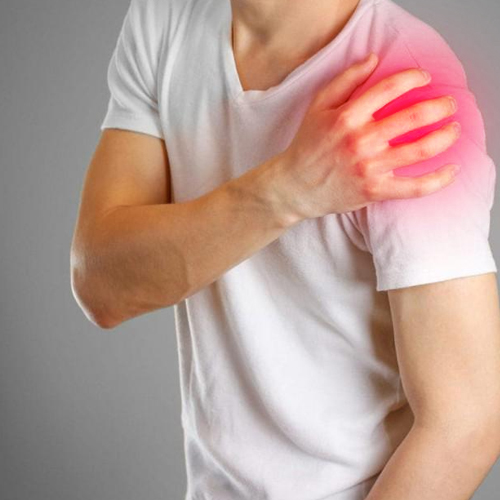- +91 62384 78716 +91 99475 78797
-
Sasthamangalam, Trivandrum
Sasthamangalam, Trivandrum
The shoulder joint can move in a wide range of directions depending on the function of many bones, ligaments, soft tissues, and tendons.
A shoulder dislocation happens when the top portion of the upper arm bone (ball of the shoulder) slips out from the cup-shaped socket (glenoid). A dislocation can cause severe pain and instability in the shoulder.
If the shoulder is partially dislocated, it is called shoulder subluxation.
Dr. Ganesh Navaneedhan offers Shoulder dislocation treatment in Kerala with state-of-the-art care that will help to reduce your chance of future or recurring dislocations.
Your shoulder can also dislocate in various directions.
The most common type is anterior dislocation or forward dislocation.
When your humeral head moves toward the back, it is called posterior dislocation.
Inferior dislocations are also a type of this injury. They occur when your humeral heads move down and out from the glenoid.
The symptoms of a dislocated shoulder depend on the extent of the dislocation and its direction.
For example, you may experience:
Multiple acute injuries and structural irregularities can cause dislocation or subluxation.
Common shoulder dislocation causes are traumatizing injuries that force your humeral head from the glenoid.
You may also suffer from a shoulder injury that can tear ligaments in the labrum and shoulder joint.
Multidirectional instability is a less common cause of shoulder dislocation. Patients with this condition may experience shoulder instability and chronic dislocations without any history of injury. These patients often have naturally loose joints throughout their bodies, sometimes called “double-jointed.”
If you experience symptoms of shoulder dislocation, chronic pain, or “looseness”, it is important to seek medical attention.
Dr. Ganesh Navaneedhan can diagnose shoulder instability by performing a joint examination. To confirm the diagnosis and guide treatment, he will order a diagnostic imaging service such as an X-ray or MRI.
A procedure known as reduction is the first step in treating a dislocation. If you have suffered trauma, this is usually done by an Emergency Room physician.
After the swelling has subsided, your doctor might immobilize your arm and shoulder with a brace or sling to keep it in place. Ice can be applied to the shoulder several times per day to reduce inflammation and pain.
Depending on the severity of the dislocation, activity level of the patient, amount of damage to the shoulder joint, and history of previous dislocations, long-term treatment could be either surgical or conservative.
Surgery might be recommended to repair the injured shoulder joint. The procedure is usually performed arthroscopically for soft tissue repair. However, a bone transplant is occasionally required, which is performed with open surgery.
Dr. Ganesh Navaneedhan performs arthroscopy through a few incisions on your shoulder.
An arthroscope, a small surgical instrument about the same size as a pencil that has a light on its tip and transmits video from your shoulder to the monitor in the treatment area, is used by him.
He can see injured tissue and other signs of injury with the arthroscope without needing to incision your shoulder.
Minimally invasive surgery offers many benefits, including reduced scarring and infection, a shorter recovery time, and less blood loss. However, open surgery may be necessary to fix shoulder tissue damage in some cases.
Contact us now and learn more about the treatment options and surgical approach that can provide the best results for your instability.

Copyright © 2025 Dr. Ganesh Navaneedhan. All Rights Reserved. | Designed By Harvee healthcare